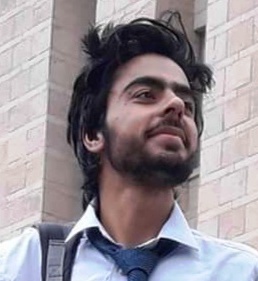by Syed Kaisar Shah
”Meh Meh” mimicking the sound of the neighbour’s sheep that will be sacrificed on the upcoming Eid, followed by his mother yelling Nair Vih (go now) at him. I stopped and his mother, a midday meal cook in a nearby Government school, requested me to take him to the other village to which I nodded.
I took him along. This 12-year-old is not very impressive in his studies but famous for his naughtiness. I initiated the conversation by asking, will you sacrifice any animal on this Eid? “We don’t need an animal to please Allah; we have already sacrificed our desires, in his way,” he replied with a palpable tinge of pride in his voice.
Further, I asked, what are your plans for Eid? He answered quickly Eid Gaye Ameeran (The Eid is for rich people). He justified the argument by saying; it will be rich people cooking different meals, burning firecrackers, wearing fancy dresses, doing unnecessary shopping and poor will remain a mute spectator.
I could feel the anger and disappointment in his statement. I interfered and tried to convince the child by saying the literal meaning of Eid that is ”the day of happiness”. His sarcastic smile was clearly showing his disagreement with my statement.
Researches show, children born in Kashmir during the conflict are highly traumatized and depressed facing emotional disorder and behavioural changes. Even some of the children grew up with pessimistic traits but this case was different.
He seemed more mature than his age, he was distinctive. His experiences seem horrible and it gives him the pragmatic feel of the society. His father, who was a private teacher, is in jail since the removal of Article 370. He will be celebrating this Eid without his father. He seemed annoyed about the people who live around him who are religious and rich. They have managed to decorate the mosque with crewel curtains, costly Kashmiri Kaleen (carpet) and full wooden panelling. They even take care of the other village affairs but fail to see the miserable condition of his family.
His next-door neighbour, a businessman, who sacrifices an animal every year which costs more than this family’s annual expenditure never lend a helping hand but this kid is not envious of him. He expects a share from his animal sacrifice. He talked about how their family waits for the sacrificial meat and makes barbeques and cooks it. At least this child has the hope that his father will return one day.
A study by UK-based child rights organization, Save the Children, has revealed that the estimated population of orphans in Jammu and Kashmir is more than two lakh. Will their condition be any better?

Syed Kaisar Shah
Meanwhile, we reached his destination and I asked hurriedly, why are you going there? He gabled, we don’t own a smartphone so my mother has requested them to allow me to watch my online classes.
He left with a smile on his face but imposed many thoughts in my mind. We might be spending hefty amounts on Eid but that is not enough. We visit graveyards on Eid and remember our dead but the question is do we care about the living ones?
(The author has completed M Tech in Software Engineering. The opinions expressed in this article are those of the author’s and do not purport to reflect the opinions or views of Kashmir Life.)
The post Why We Remember Dead On Eid While Forgetting Those Living Around? appeared first on Kashmir Life.
from Kashmir Life https://ift.tt/3hRJoGV
via IFTTThttps://kashmirlife.net
No comments:
Post a Comment